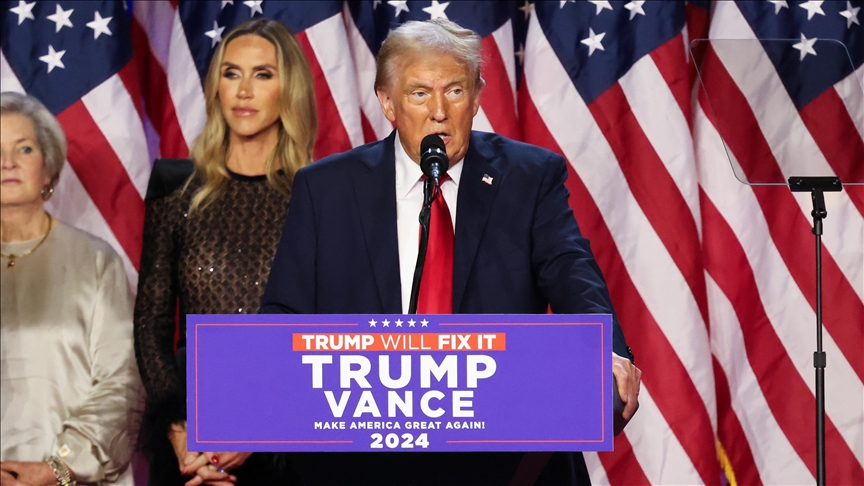Trump’s victory shifts attention to US climate and trade policies
Second Trump term could obstruct climate action amid US-China, Europe trade frictions
Trump’s victory shifts attention to US climate and trade policies
LONDON
warn that Republican Donald Trump’s recent US presidential election win could significantly impact efforts to combat climate change, clean energy progress, and trade policies, with possible adverse effects on the US economy.
Trump’s campaign included promises to halt offshore wind projects, which contributed to a sharp drop in energy stock values, particularly in Europe. During his first term, Trump withdrew the US from the Paris Agreement, a decision reversed by President Joe Biden in 2021. Trump may repeat this withdrawal in his second term.
Following the election news, the European Renewable Energy Price Index (ERIX) dropped 9.5% on Wednesday.
Spanish renewable energy company EDP Renovaveis saw an 11% decrease in share value, while Orsted, the world’s largest offshore wind energy firm, experienced a 12.8% drop.
Danish wind turbine company Vestas recorded a 12.8% decline, and German renewable firm RWE’s shares fell 4.4%.
Nordex ended Wednesday down 7.5%, and shares in Portugal’s EDP fell by 7.1%.
Trump’s election win comes just before the UN Climate Change Conference COP 29, starting Monday in Baku, Azerbaijan.
The Biden administration will lead US participation in climate talks as Trump’s term begins in January 2025.
With around 200 nations attending, climate finance will be a major focus of COP 29, aimed at establishing financial targets to support developing nations vulnerable to climate impacts.
– Uncertain times ahead
Neil Makaroff, director at European think tank Strategic Perspectives, described Trump’s win as “a direct threat to European interests.”
“A Trump administration will likely trigger a serious trade war with China and potentially the EU, risking global economic instability. A unified European strategy and a significant investment plan are needed to secure economic stability,” Makaroff said.
He emphasized that Europe must bolster its industry and decarbonization initiatives to mitigate the influence of the new US administration and reduce reliance on US liquefied natural gas (LNG).
“European nations need to rally around a robust industrial policy that fosters ‘Made in EU’ supply chains and boosts energy independence. This is essential to withstand pressure from a US trade war and China’s economic sway,” he stated.
“Now is not the time for Europe to act divided or individually,” he warned.
– Risks to climate targets
Climate Analytics CEO Bill Hare noted that human activities have already pushed global temperatures 1.3C above pre-industrial levels, causing significant loss of life worldwide.
Hare emphasized that if Trump withdraws the US from the Paris Agreement again, the repercussions would be severe. The previous US exit did not derail the accord, but another withdrawal could hinder the goal of capping warming at 1.5C.
European Climate Foundation (ECF) CEO Laurence Tubiana wrote on X that the US election outcome could slow down global climate progress.
“However, we should not lose hope. The Paris Agreement has shown resilience, stronger than the policies of any single nation,” she posted.
